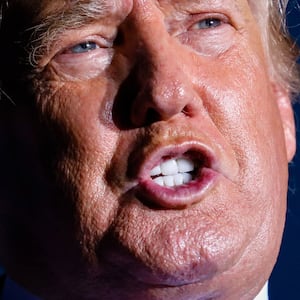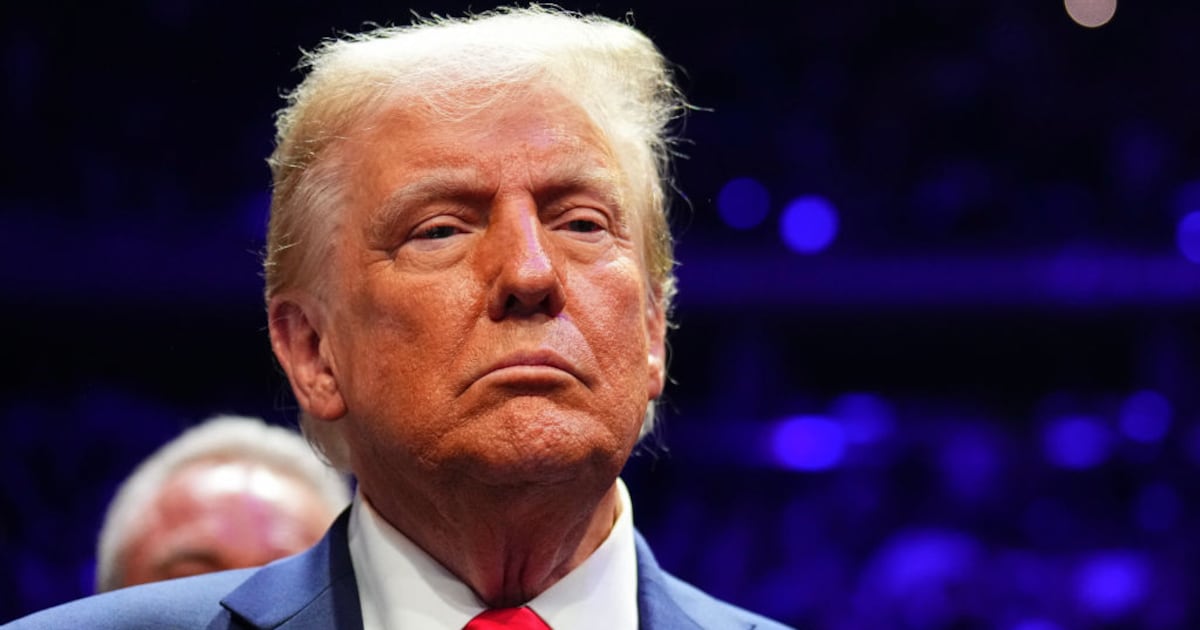The indictment filed last week against the Trump Organization and its long-time chief financial officer Allen Weisselberg isn’t heavy on names, but there’s one major exception: a list of seven Trump Organization companies—including one where Ivanka Trump held an executive role for eight years.
While it’s impossible to know what charges are still to come, legal experts say the indictment for Weisselberg last week suggests bigger targets are in line, potentially including the former president’s adult children.
“Since this indictment is in a New York state court, prosecutors are allowed to name these companies, whereas in federal court they could not,” Melissa Jampol, a former assistant U.S. attorney who now practices business law at Epstein Becker Green, told The Daily Beast. “Based on my experience, everything’s in there for a reason.”
ADVERTISEMENT
Prosecutors say the seven companies, along with unnamed Trump entities, exhibited a pattern of paying “a substantial portion” of year-end bonuses to Weisselberg and “other executives” as if they weren’t employees, but independent contractors. Prosecutors also claim the companies and executives knew the practice was wrong, and the amounts appear to be substantial. For instance, Weisselberg allegedly broke the law by putting hundreds of thousands of dollars in bonus money in a tax-free pension plan.
But experts say the arrangement also implicates the companies—and possibly the executives who ran them.
That could spell major trouble for Trump’s children, as well as Trump himself, who has already adopted a legal strategy of ignorance of the tax laws.
“In general, if you work for a company, you get a W2 form for your taxes,” David Sands, partner at accounting firm Buchbinder Tunick, told The Daily Beast. “Some companies try to skirt that by having a related company say, ‘Oh that’s not my employee, so give them a 1099 instead.’”
Tunick continued that employees and businesses get benefits for deductions and often try to shield that income. “It’s a practice that’s frowned upon by the IRS, and skirts tax laws,” he said.
The federal flat withholding tax on employee bonus pay is 22 percent. Other payroll taxes would apply as well. The Trump companies running the scheme alleged by prosecutors would have denied that money to the government. And that alone may be enough to bring down a number of members of the Trump family.
“The section about the bonuses may have at first seemed like a small deal compared to some of the other charges, but it could actually be one of the keys,” said Ed McCaffrey, a tax law expert and Robert C. Packard Trustee Chair in Law at the University of Southern California.
That key, he said, is the indictment’s allegation that the bonus scheme was a matter of “practice” at the Trump Organization, something “you generally don’t see in major American corporations.”
“That establishes a pattern,” McCaffrey continued. “A one-off may not normally draw government attention. But this is year-in and year-out tax fraud over decades, across the organization.”
McCaffrey added that if the whole organization were “infected” with “tax-evasion fever,” and if prosecutors could establish that picture, it would be easier to climb the net to other executives. “The question here is, what’s the exposure to the executives on the organization side,” he said.
In the indictment for the Trump Organization that came out last week, prosecutors single out seven companies: Wollman Rink Operations LLC, Trump International Golf Club LLC, Mar-a-Lago, Trump Productions LLC, VH Property Corp. (the parent company of Trump National Golf Club in Los Angeles), Trump Las Vegas Development LLC, and Trump CPS LLC.
Former federal prosecutor Barb McQuade told The Daily Beast that the decision to single out these companies may be part of an attempt to secure further cooperation ahead of future charges.
“Sometimes prosecutors hold back some charges to permit an opportunity to explore cooperation before playing all of their cards,” she said.
While the indictment only names Weisselberg, the “other executives” mentioned in the indictment could include Trump’s children, who held top roles in these organizations—specifically his eldest daughter, former senior White House adviser Ivanka Trump.
Ivanka’s financial disclosures show that from 2009 to 2017, she was vice president of one of the companies named in the indictment—Trump Las Vegas Development LLC. According to federal disclosures, that company was established to collect development fees on Trump Ruffin Tower, a combination hotel-condo building in Las Vegas.
But those disclosures also show the company’s underlying value isn’t clear, and its income has swung wildly. The business posted no income at all in 2014 and 2015, then hauled $8.1 million in 2016 before reporting no income again in 2017, the year Ivanka left the company. It pulled in a little over $3 million annually for the next two years, then went dormant.
“There has to be a real business purpose to the company,” Jampol said. “So what are these entities doing? Are they actually engaging in business, or are they just there to pay compensation some years? You really have to be performing consulting services to qualify as a consultant.”
McCaffrey said the Trump children and other executives would “almost certainly” not qualify as consultants. “The IRS has a rule book. If you’re already an employee, you’re not gonna be an independent contractor,” he said.
Last September, The New York Times reported that Trump’s tax returns show Ivanka Trump appeared to have received nearly $750,000 in consulting fees from a different Trump company where she was also an executive. After that report, New York Attorney General Letitia James, who partnered with Manhattan District Attorney Cyrus Vance on the Trump Organization investigation, subpoenaed the Trump Organization for records related to those transactions.
But most businesses don’t see much tax incentive to pay contractor fees, according to McCaffrey. Companies can deduct salaries as business costs. But he noted that Trump entities may look at this differently.
“Trump businesses don’t turn profits. And if a business doesn’t show a profit, they may not care about losing those deductions. So instead they’re paying these bonuses to employees in a way that they don’t have to pay taxes on it,” McCaffrey said.
The official relationships between Trump’s children and the various entities of the family business are blurry. “We don’t take titles particularly seriously at the Trump Organization,” Ivanka said in a 2016 deposition.
But a person with knowledge of the company told The Daily Beast that “every new project had to have one of the kids attached to it.”
Incorporation documents don’t list any principals other than Donald Trump until he handed his business administration to his children after assuming the White House in 2017. But his children have long been closely involved with operations. And Ivanka’s financial disclosures reveal she’d held executive positions at dozens of Trump entities, including at Mar-a-Lago, which is listed in the indictment.
But some of the companies listed in the indictment also bear connections to Eric Trump and Donald Trump Jr. as well.
For instance, Trump CPS LLC reportedly cut Eric a sweetheart deal on condo purchases in April 2016. The indictment also names two golf courses, a corporate vertical that largely falls to Don Jr.
One of those two golf courses, Trump National in Los Angeles, happens to be under investigation by James’ office for possible tax fraud. Prosecutors also called out Trump Productions LLC, the ex-president’s media company which produced the Trump-hosted game show The Apprentice. Both Eric and Donald Trump Jr. served as advisers on that series.
Jampol noted that, while the charges are at the state level, the indictment also details federal crimes, “so we can’t rule out a federal investigation down the road.”
The blurred business lines, however, may pose hurdles for prosecutors, who still have until November to make their arguments to a grand jury.
“That’s the weakest link: Who at the organization can be held criminally responsible?” McCaffrey said. “That, I think, is gonna be the toughest thing. Some executives may try to take the ‘ostrich defense,’ say their heads were in the sand.”
In a deposition earlier this year, Ivanka Trump appeared to distance herself from Weisselberg. She told investigators she wasn’t familiar with her family company’s CFO, suggesting she was unaware of his responsibilities.
“He is the—I would have to see what his—I don’t know his exact title, but he’s an executive at the company,” she said.






